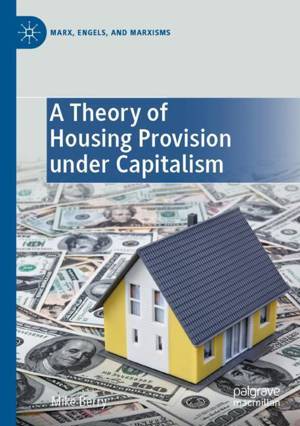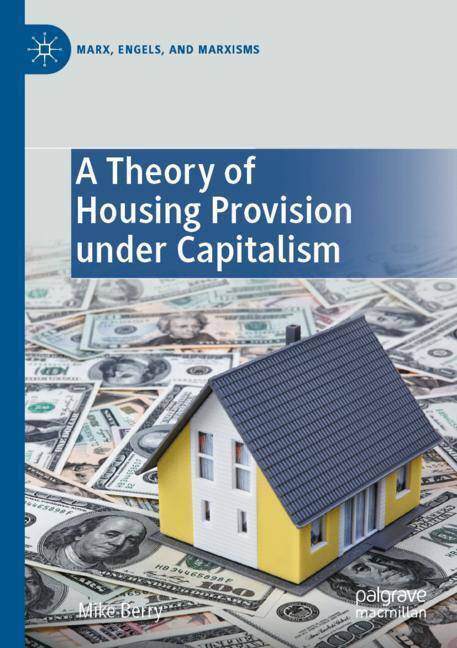
- Afhalen na 1 uur in een winkel met voorraad
- Gratis thuislevering in België vanaf € 30
- Ruim aanbod met 7 miljoen producten
- Afhalen na 1 uur in een winkel met voorraad
- Gratis thuislevering in België vanaf € 30
- Ruim aanbod met 7 miljoen producten
Zoeken
Omschrijving
This book provides the first coherent Marxist analysis of the central importance of housing in the social reproduction of capitalism as a whole. Rather than consigning housing to the sidelines, Berry argues that the circulation of capital and revenues though housing and the built environment helps explain how the capital-labour relation constrains housing outcomes while also being reproduced on an extended scale. He shows how housing is provided by the intervention of building, property and interest-bearing capital fractions; how the land question can be explained by a theory of urban land rent, drawing on Marx's categories of differential and monopoly rent; how housing is vital to the extended reproduction of labour power, while also creating a semi-separate sphere of 'home' in which gender and demographic factors overlay and accentuate social class position. The modes, impact and drivers of state intervention in housing provision are seen to modify the patterns and pace of capital circulation through housing and the urban built environment with implications for shifts in class fragmentation and power relations.
Specificaties
Betrokkenen
- Auteur(s):
- Uitgeverij:
Inhoud
- Aantal bladzijden:
- 240
- Taal:
- Engels
- Reeks:
Eigenschappen
- Productcode (EAN):
- 9783031244735
- Verschijningsdatum:
- 8/05/2024
- Uitvoering:
- Paperback
- Formaat:
- Trade paperback (VS)
- Afmetingen:
- 148 mm x 210 mm
- Gewicht:
- 351 g

Alleen bij Standaard Boekhandel
+ 274 punten op je klantenkaart van Standaard Boekhandel
Beoordelingen
We publiceren alleen reviews die voldoen aan de voorwaarden voor reviews. Bekijk onze voorwaarden voor reviews.











